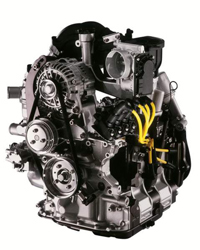Dodge Stealth P0868 Engine Trouble Code
Theoretically you can drive for a few weeks or even months with a broken MAF sensor. You will notice a decrease in gas mileage and over time the car will eventually start stalling a lot. At a shop, the replacement cost is between $200-$300 depending on the car, but that's usually the cost of parts because the labor is relatively simple.
Dodge Stealth P0868 Code Meaning :
| P | 0 | 8 | 6 | 8 |
|---|---|---|---|---|
| OBD-II Diagnostic Powertrain (P) Trouble Code For Engine | Intake Valve Control Solenoid Circuit Low | Engine Oil Temperature Sensor Malfunction | Cylinder 4 Contribution/Balance Fault | Clutch Position Sensor Circuit Malfunction |

|
When you check Dodge Stealth car engine light came on code P0868 the reason should be . However manufacturer may have a different definition for the P0868 OBD-II Diagnostic Powertrain (P) Trouble Code. So you should chech it on our car models. |
P0868 Fault Symptoms :
|
If one of these reasons for P0868 code is occuring now you should check P0868 repair processes.
Now don't ask yourself; What should you do with P0868 code ? The solution is here : |
Dodge Stealth P0868 Possible Solution :
The crankshaft sensor signals the fuel injection computer or the ignition control when the cylinders are firing. This causes the ignition coil to provide a spark and the injector to inject fuel into each cylinder at the right time.If either sensor isn't working correctly, the car will run rough and the engine will be less efficient. In later car models, the car's computer can usually keep the vehicle running, but the engine warning light on the dashboard goes on to warn the driver.
P0868 OBD-II Diagnostic Powertrain (P) Trouble Code DescriptionP0868 engine trouble code is about Clutch Position Sensor Circuit Malfunction.Reason For P0868 CodeThe reason of P0868 OBD-II Engine Trouble Code is Engine Oil Temperature Sensor Malfunction. |
Parts or components should not be replaced with reference to only a P0868 DTC. The vehicle service manual should be consulted for more information on possible causes of the fault, along with required testing.

